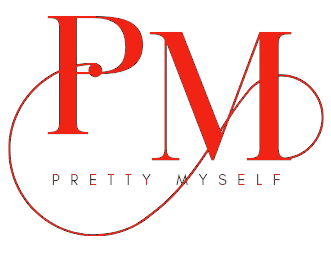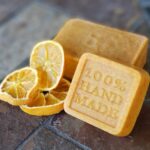Page Contents
Your Skin’s Worst Enemies: 7 Acne-Causing Foods
Acne is a common skin condition that affects people of all ages. It occurs when dead skin cells, oil, and bacteria clog hair follicles, leading to bumps, breakouts, and inflammation. While genetics and hormones play a big role, diet is an important trigger too. Making smart dietary choices can help prevent acne flare-ups and keep your skin clear. In this post, we’ll look at the top 7 acne-causing foods to avoid.
What Foods Should You Avoid For Acne-Prone Skin?
High Glycemic Index Foods
Foods with a high glycemic index cause rapid spikes in blood sugar levels. This triggers inflammation and increased insulin circulation which can stimulate oil production in pores leading to clogged follicles and acne breakouts. High GI foods to avoid include:
White bread, rice, pasta
Chips, crackers, pretzels
Sugary cereals, baked goods
Sodas, energy drinks
Candy, chocolate
Full-Fat Dairy Products
Milk and cheese contain hormones as well as whey and casein proteins that can trigger excess sebum production, inflaming pores and causing breakouts. If you enjoy dairy, opt for low-fat or nonfat options such as:
Nonfat milk, yogurt
Low-fat cheese and cottage cheese
Soy, almond, rice or oat milk
Fried & Processed Foods
Foods high in unhealthy trans and saturated fats promote inflammation which can worsen acne. These oils can also directly increase sebum production by sebaceous glands. Fried and processed foods to avoid include:
French fries, potato chips
Fast food burgers and fried chicken
Margarine, vegetable shortening
Baked goods like donuts, cookies
Salami, sausage, bacon
Chocolate
Chocolate contains cacao, saturated fat, dairy, and sugar – all problematic for acne-prone skin. Cacao increases sebum secretion while the additives promote inflammation. When buying chocolate, choose small portions of antioxidant-rich dark chocolate with 70%+ cocoa.
Whey Protein Powder
Whey protein powder is derived from dairy, contain hormones and IGF-1 growth factors that can directly trigger acne breakouts. For clearer skin, try plant-based protein powders instead, like:
Pea protein
Brown rice protein
Hemp protein
Soy protein
Alcoholic Beverages
Alcohol dehydrates the skin, increases inflammation, and impacts hormone regulation – causing excess oil production. It also damages the liver over time, making it harder for the body to eliminate acne-causing toxins. Limit alcoholic drinks, especially sugary mixes like coolers, beer, and sweet cocktails.
Shellfish
Shellfish have high levels of iodine, a mineral that can stimulate sebaceous glands and exacerbate acne in people with iodine sensitivities. People who are prone to breakouts should also limit seaweed and iodized salt.
Tips For Clear, Acne-Free Skin

Now that you know which foods to avoid, focus on eating more skin-clearing foods:
Eat plenty of antioxidants from fruits and vegetables, like vitamin C and lycopene
Enjoy healthy fats like avocado, olive oil, nuts and salmon
Stay hydrated and drink green tea to reduce inflammation
Take a probiotic supplement to support gut health and skin
Manage stress levels through rest, relaxation, yoga or meditation
By nourishing your body with a balanced anti-inflammatory diet full of lean proteins, fruits/veggies and hydration while avoiding dietary acne triggers – your skin can thrive and stay clear.
For a comprehensive acne care routine, consider incorporating the Neutrogena Oil-Free Acne Wash, available on Amazon. This facewash is formulated to effectively treat and prevent acne, featuring an oil-free formula to control excess oil without over-drying. It’s suitable for daily use and provides a thorough cleansing experience.
If you prefer a cleanser, the CeraVe Acne Foaming Cream Cleanser is another option worth exploring. Specifically designed for acne treatment, it helps remove dirt, excess oil, and makeup. Non-comedogenic and suitable for sensitive skin, it offers a gentle yet effective solution for acne-prone individuals.
Cetaphil Daily Facial Cleanser is a mild and non-irritating option suitable for all skin types. This cleanser effectively removes impurities without causing dryness or irritation. It’s a reliable choice for those looking for a gentle daily facial cleanser.
For oily and acne-prone skin, the La Roche-Posay Effaclar Purifying Foaming Gel is formulated to address specific concerns. This soap-free and pH-balanced gel cleanser work to remove impurities and excess oil, promoting a clearer complexion. It is tailored to the needs of those with acne-prone skin.
When it comes to targeted spot treatment, the Mario Badescu Drying Lotion is a popular choice. This spot treatment is designed to dry out blemishes with ingredients like calamine, providing a targeted approach to acne management. Suitable for various skin types, it has gained a reputation for its efficacy.
Alternatively, the Vanicream Moisturizing Cream is a gentle and non-comedogenic option, free of common irritants. Especially suitable for sensitive skin, this moisturizer helps maintain skin health without triggering adverse reactions. Always check the latest product details and reviews on Amazon, and consult with a dermatologist for personalized skincare advice based on your specific skin concerns or conditions. Individual responses to skincare products can vary, so it’s advisable to patch-test new products to avoid adverse reactions.
Frequently Asked Questions Here are answers to some common questions about diet and acne:
Will drinking more water help prevent acne?
Yes! Staying hydrated helps flush out toxins and prevents dryness/overproduction of oil. Aim for 2-3 liters of water daily. Avoid dehydrating drinks like coffee, soda and alcohol as well.
Does eating greasy foods like pizza cause acne?
Yes, greasy foods high in saturated/trans fat and calories can worsen acne by promoting inflammation. They also stimulate sebum production which clogs pores. Avoid fried fast foods.
Do protein shakes cause acne breakouts?
Whey protein often does trigger breakouts due to hormones and amino acids that overstimulate oil glands. Plant proteins like pea, rice or hemp are better options if you’re prone to acne.
Will cutting out all dairy clear my skin?
For some people, yes! But small amounts of low-fat dairy may be fine too. Try eliminating all dairy for 3 weeks to see if your skin improves. Then slowly reintroduce it to know your limits.
Is chocolate really that bad for acne?
Sadly yes. Cocoa, milk and sugar in chocolate promotes inflammation and excess sebum production. Limit chocolate, opt for small portions of antioxidant-rich dark chocolate.
Do vitamins help acne?
Specific supplements like zinc, omega-3s, vitamin D and probiotics have been shown to reduce acne. Try incorporating salmon, flaxseed or a greens powder. But always check with your dermatologist first!
Making smart adjustments to your diet to avoid foods that cause inflammation, stimulate oil production, and throw hormones off balance is crucial for clear skin. Focus on antioxidant and nutrient-dense whole foods that nourish skin health from the inside out. Drink plenty of water, manage stress, take targeted supplements, and practice a consistent skincare routine as well. Adopting an anti-acne lifestyle with both dietary and lifestyle changes will help you achieve clear, glowing skin long-term.
Explore Further: Also Read these Engaging Articles



